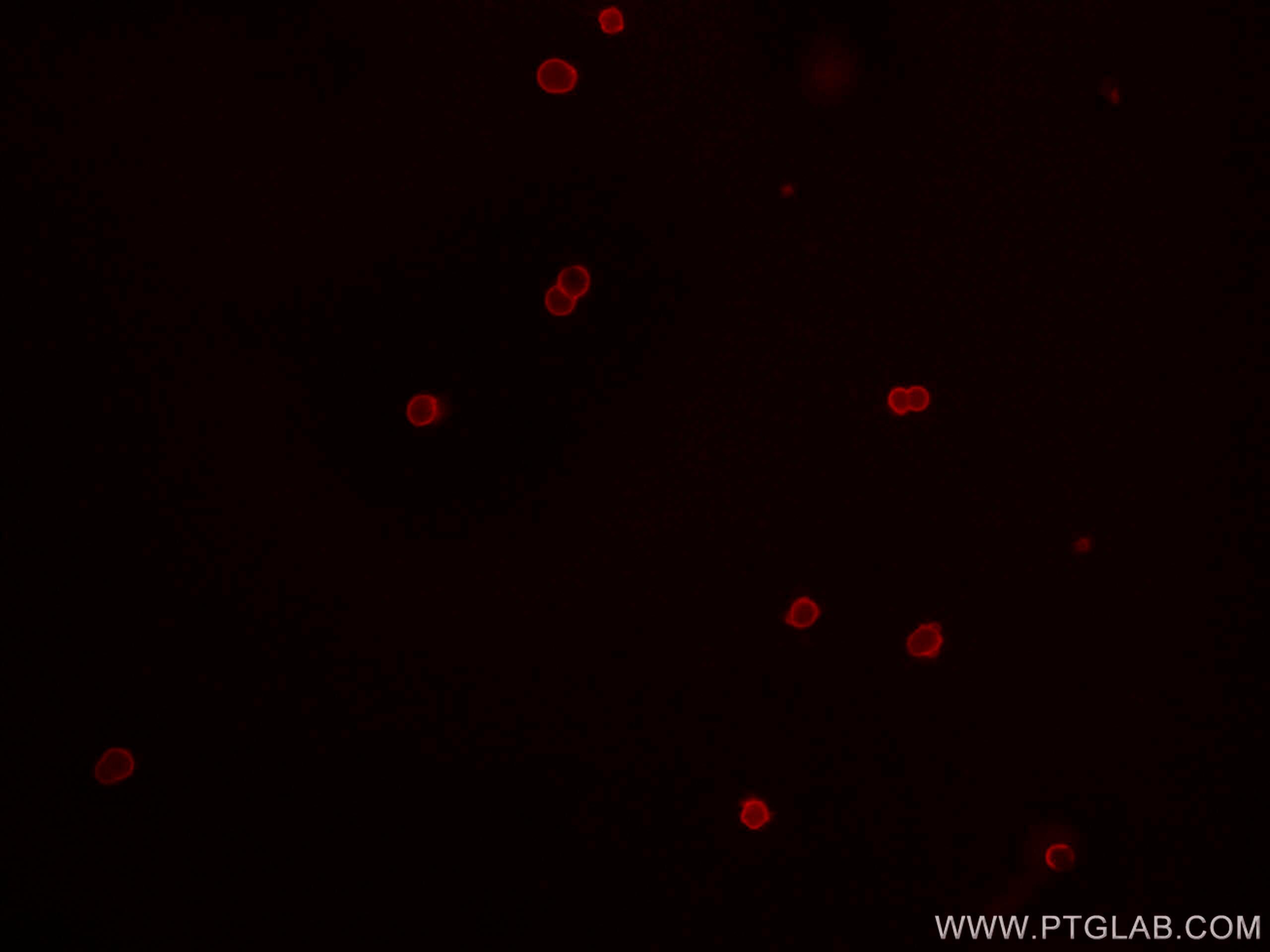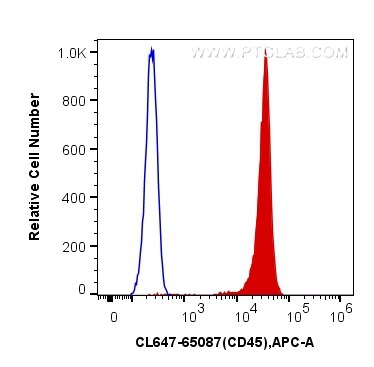Validation Data Gallery
Tested Applications
| Positive IF/ICC detected in | mouse splenocytes |
| Positive FC detected in | mouse splenocytes |
Recommended dilution
| Application | Dilution |
|---|---|
| Immunofluorescence (IF)/ICC | IF/ICC : 1:200-1:800 |
| This reagent has been tested for flow cytometric analysis. It is recommended that this reagent should be titrated in each testing system to obtain optimal results. | |
| Sample-dependent, Check data in validation data gallery. | |
Product Information
CL647-65087 targets CD45 in IF/ICC, FC applications and shows reactivity with mouse samples.
| Tested Reactivity | mouse |
| Host / Isotype | Rat / IgG2b, kappa |
| Class | Monoclonal |
| Type | Antibody |
| Immunogen | Mouse thymus or spleen 相同性解析による交差性が予測される生物種 |
| Full Name | protein tyrosine phosphatase, receptor type, C |
| GenBank accession number | BC028512 |
| Gene Symbol | CD45 |
| Gene ID (NCBI) | 19264 |
| RRID | AB_2883673 |
| Conjugate | CoraLite® Plus 647 Fluorescent Dye |
| Excitation/Emission maxima wavelengths | 654 nm / 674 nm |
| Form | Liquid |
| Purification Method | Affinity purification |
| UNIPROT ID | P06800 |
| Storage Buffer | PBS with 0.09% sodium azide and 0.5% BSA , pH 7.3 |
| Storage Conditions | Store at 2-8°C. Avoid exposure to light. Stable for one year after shipment. |
Background Information
CD45, also known as protein tyrosine phosphatase, receptor type C, is a type I transmembrane protein expressed on the surface of all haematopoietic cells with the exception of erythrocytes and platelets (PMID: 3489673; 28615666). CD45 is a pan-haematopoietic cell marker and has been shown to be essential for T- and B-cell activation and signalling (PMID: 9429890; 16378097).
Protocols
| Product Specific Protocols | |
|---|---|
| IF protocol for CL Plus 647 CD45 antibody CL647-65087 | Download protocol |
| Standard Protocols | |
|---|---|
| Click here to view our Standard Protocols |

